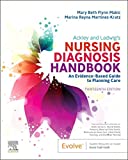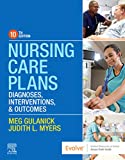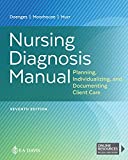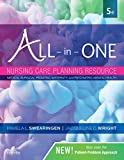Sexual assault is defined as sexual contact or behavior that occurs against the will of the person. It is a form of sexual violence that includes rape (a non-consensual vaginal, anal, or oral penetration, done by force or threat of bodily harm), forced kissing, groping, child sexual abuse, or drug-facilitated sex.
Table of Contents
Nursing Care Plans and Management
The nursing care plan for clients experiencing sexual assault should include assisting the victim to seek medical attention, encouraging verbalization of the assault, informing the significant others in the victim’s life, providing safety, providing support at certain times of stress, especially during police investigations or court proceedings, and planning for follow-up contact with a crisis counselor.
Nursing Problem Priorities
The following are the nursing priorities for patients with sexual assault:
- Physical well-being and safety. Ensuring the immediate safety and physical well-being of patients who have experienced sexual assault, including providing medical care and addressing injuries.
- Emotional support and trauma-informed care. Offering compassionate and trauma-informed emotional support to survivors of sexual assault, creating a safe environment for disclosure and promoting healing and recovery.
- Forensic evidence collection and documentation. Facilitating the collection and documentation of forensic evidence in a sensitive and respectful manner, preserving crucial evidence for potential legal proceedings.
- Risk assessment and safety planning. Assessing and addressing the risk of further harm or re-victimization, and collaboratively developing safety plans to minimize future incidents.
- Referral to support services. Connecting survivors with appropriate support services, such as counseling, crisis hotlines, support groups, and legal advocacy, to address their psychological, emotional, and legal needs following the experience of sexual assault.
Nursing Assessment
Assess for the following subjective and objective data:
- See nursing assessment cues under Nursing Interventions and Actions.
Nursing Diagnosis
Following a thorough assessment, a nursing diagnosis is formulated to specifically address the challenges associated with sexual assault based on the nurse’s clinical judgment and understanding of the patient’s unique health condition. While nursing diagnoses serve as a framework for organizing care, their usefulness may vary in different clinical situations. In real-life clinical settings, it is important to note that the use of specific nursing diagnostic labels may not be as prominent or commonly utilized as other components of the care plan. It is ultimately the nurse’s clinical expertise and judgment that shape the care plan to meet the unique needs of each patient, prioritizing their health concerns and priorities.
Nursing Goals
Goals and expected outcomes may include:
- The survivor will experience hopefulness and confidence in going ahead with life plans.
- The survivor will have a resolution of anger, guilt, fear, depression, and low self-esteem.
- The survivor will acknowledge the right to disclose and discuss abusive situations.
- The survivor will list common physical, emotional, and social reactions that often follow a sexual assault before leaving the emergency department or crisis center.
- The survivor will state the results of the physical examination completed in the emergency department or crisis center.
- The survivor will speak to a community-based rape victim advocate in the emergency department or crisis center.
- The survivor will have access to information on obtaining competent legal counsel.
- The survivor will begin to express reactions and feelings about the assault before leaving the emergency department or crisis center.
- The survivor will have a short-term plan for handling immediate situational needs before leaving the emergency department or crisis center.
- The survivor will verbalize the details of the abuse.
- The survivor will state that the physical symptoms (e.g., sleep disturbances, poor appetite, and physical trauma) have subsided within 3 to 5 months.
- The survivor will state that the acuteness of the memory of the rape subsides with time and is less vivid and less frightening within 3 to 5 months.
- The survivor will discuss the need for follow-up crisis counseling and other support.
Nursing Interventions and Actions
Therapeutic interventions and nursing actions for patients with sexual assault may include:
1. Assess the signs and symptoms of physical trauma.
More common injuries are to the face, head, and neck extremities.
2. Make a body map to identify the size, color, and location of injuries. Ask permission to take photos.
Accurate records and photos can be used as medicolegal evidence in the future.
3. Ensure the following data are carefully documented:
Accurate and detailed communication is crucial legal evidence.
- All lab tests should be noted.
- Detailed observations of physical trauma.
- Detailed observations of emotional status.
- Results from the physical examination.
- Verbatim statements.
4. Assess the patient’s level of distress, coping strategies, and support system.
This information can also help nurses anticipate and address potential issues related to the patient’s recovery and healing process.
5. Inform the client that the following will be used for the identification and prosecution of the rapist, such as blood samples, combing pubic hairs, semen samples, and skin from underneath nails.
Collecting body fluids and swabs is essential (DNA) for identifying the rapist.
1. Establish trust and rapport.
Since the victim may misinterpret any statements unrelated to the immediate situation as blaming or rejecting, the nurse should delay asking questions until the therapeutic nature is established.
2. Provide strict confidentiality.
The client’s situation is not to be talked over with anyone other than the medical staff involved unless the client gives consent to it.
3. Approach the client in a nonjudgmental manner.
Nurses’ attitudes can have an important therapeutic impact. Displays of shock, horror, disgust, or disbelief are not appropriate.
4. Never use judgmental language. Rather use the following language:
Using judgmental language towards a patient who has experienced rape trauma syndrome can be harmful and re-traumatizing. It can make the patient feel ashamed, blamed, or invalidated, which can further exacerbate their trauma symptoms and delay the healing process.
- Reported, not alleged.
- Declined, not refused.
- Penetration, not intercourse.
5. Have someone stay with the client (friend, neighbor, or staff member) while he or she waiting to be treated.
People with high levels of anxiety need to feel physical safety by providing someone by his/her side until the anxiety level is down to moderate.
6. Stress that “they did the right thing to save their life”.
Rape victims might feel guilt and shame. Reinforcing that they did what they had to do to stay alive can reduce guilt and maintain self-esteem.
7. Encourage verbalization.
When people feel understood, they feel more in control of their situations.
8. Explain to the client signs and symptoms that many people experience during the long-term phase such as anxiety, depression, insomnia, nightmares, phobias, and somatic symptoms.
Many individuals think they are going crazy as time goes on and are not aware that this is a process that many people in their situation have experienced.
9. Carefully explain all procedures before doing them (e.g., “I will perform a vaginal examination and do a swab. Have you had a vaginal examination before?” [rectal examination in case of a male who has been raped]).
The individual is experiencing high levels of anxiety. Matter-of-fact explaining what you plan to do and why you are doing it can help reduce fear and anxiety.
10. Encourage the client to consider treatment and evaluation for sexually transmitted diseases before leaving the emergency department.
Many survivors are lost to follow-up after being seen in the emergency department or crisis center and will not otherwise get protection.
11. Anticipate the prescription of norgestrel (Ovral) by the clinics as prophylaxis to pregnancy.
Approximately 3% to 5% of women who are raped become pregnant.
12. Arrange for support follow-up from crisis counseling, group therapy, individual therapy, rape crisis center, and support group.
Many individuals carry with them constant emotional distress and trauma. Depression and suicidal ideation are frequent sequelae of rape. As soon as
Recommended Resources
Recommended nursing diagnosis and nursing care plan books and resources.
Disclosure: Included below are affiliate links from Amazon at no additional cost from you. We may earn a small commission from your purchase. For more information, check out our privacy policy.
Ackley and Ladwig’s Nursing Diagnosis Handbook: An Evidence-Based Guide to Planning Care
We love this book because of its evidence-based approach to nursing interventions. This care plan handbook uses an easy, three-step system to guide you through client assessment, nursing diagnosis, and care planning. Includes step-by-step instructions showing how to implement care and evaluate outcomes, and help you build skills in diagnostic reasoning and critical thinking.

Nursing Care Plans – Nursing Diagnosis & Intervention (10th Edition)
Includes over two hundred care plans that reflect the most recent evidence-based guidelines. New to this edition are ICNP diagnoses, care plans on LGBTQ health issues, and on electrolytes and acid-base balance.

Nurse’s Pocket Guide: Diagnoses, Prioritized Interventions, and Rationales
Quick-reference tool includes all you need to identify the correct diagnoses for efficient patient care planning. The sixteenth edition includes the most recent nursing diagnoses and interventions and an alphabetized listing of nursing diagnoses covering more than 400 disorders.

Nursing Diagnosis Manual: Planning, Individualizing, and Documenting Client Care
Identify interventions to plan, individualize, and document care for more than 800 diseases and disorders. Only in the Nursing Diagnosis Manual will you find for each diagnosis subjectively and objectively – sample clinical applications, prioritized action/interventions with rationales – a documentation section, and much more!

All-in-One Nursing Care Planning Resource – E-Book: Medical-Surgical, Pediatric, Maternity, and Psychiatric-Mental Health
Includes over 100 care plans for medical-surgical, maternity/OB, pediatrics, and psychiatric and mental health. Interprofessional “patient problems” focus familiarizes you with how to speak to patients.

See also
Other recommended site resources for this nursing care plan:
- Nursing Care Plans (NCP): Ultimate Guide and Database MUST READ!
Over 150+ nursing care plans for different diseases and conditions. Includes our easy-to-follow guide on how to create nursing care plans from scratch. - Nursing Diagnosis Guide and List: All You Need to Know to Master Diagnosing
Our comprehensive guide on how to create and write diagnostic labels. Includes detailed nursing care plan guides for common nursing diagnostic labels.
Other care plans for mental health and psychiatric nursing:
- Alcohol Withdrawal | 5 Care Plans
- Anxiety and Panic Disorders | 7 Care Plans
- Bipolar Disorders | 6 Care Plans
- Major Depression | 9 Care Plans UPDATED!
- Personality Disorders | 4 Care Plans
- Schizophrenia | 6 Care Plans UPDATED!
- Sexual Assault | 1 Care Plan
- Substance Dependence and Abuse | 8 Care Plans UPDATED!
- Suicide Behaviors | 3 Care Plans
